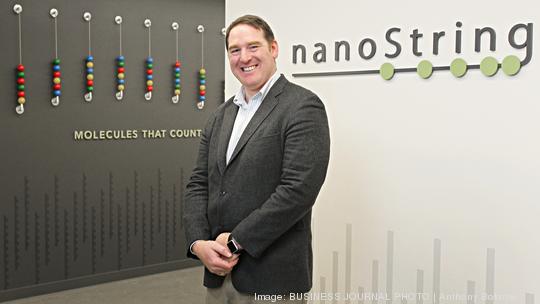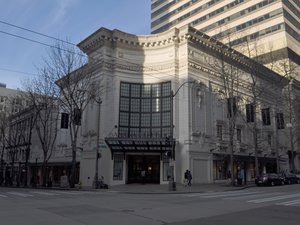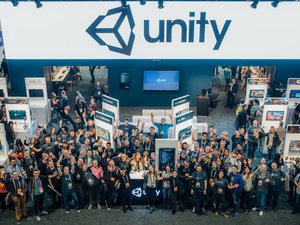
Seattle-based research device maker NanoString Technologies has found a new buyer, marking the latest turn in a tumultuous few months for the company.
On Wednesday, NanoString announced plans to be acquired by the scientific instrument company Bruker Corp. (Nasdaq: BRKR) for about $392.6 million in a deal expected to close in early May.
NanoString, which filed for Chapter 11 bankruptcy protection in February, in March struck a deal to be acquired by a different company, the health care investment firm Patient Square Capital, for $220 million. Patient Square made its offer as a "stalking-horse" bidder, or an entity that puts in a preliminary offer to set the low-end bidding bar.
According the NanoString, Bruker submitted a qualifying bid on Friday, which led to an auction Tuesday that drove up the price. The deal needs approval from bankruptcy court.
"As a global leader in the life science analytical instrument industry, Bruker is uniquely positioned to ensure ongoing customer access to NanoString’s innovations,” NanoString CEO Brad Gray said in a news release. “The sale to Bruker will also bring about a swift conclusion of our restructuring process."
A NanoString spokesperson said the company wasn't commenting beyond the release.
Related coverage
NanoString said in the release its business will no longer be subject to bankruptcy proceedings once the deal closes. The deal also includes the assumption of certain liabilities.
Bruker, headquartered in Billerica, Massachusetts, was founded in 1960 and makes a variety of scientific instruments, including microscopes, diffractometers and semiconductor manufacturing products. Bruker generated $2.96 billion in revenue in 2023, up 17.1% year over year.
Wednesday's acquisition news comes amid a period of uncertainty for NanoString, which has been fighting patent litigation from competitor 10x Genomics. 10x has sued NanoString in the U.S., Germany and the European Union’s Unified Patent Court (UPC). The February bankruptcy filing stopped all ongoing patent litigation against NanoString, which has since raised $47.5 million in debtor-in-possession financing.
Gray at the time of the bankruptcy filing called the decision “a direct result of the extraordinary campaign of litigation instigated by 10x Genomics.”
10x in November announced a jury in the U.S. District Court for the District of Delaware found in favor of 10x in a patent lawsuit, awarding 10x more than $31 million in damages. NanoString released a statement saying it plans to appeal the decision, a process that usually takes 12 to 18 months.
The UPC in September issued a preliminary injunction blocking sales of some NanoString products in the 17 UPC countries, but in February, NanoString announced the UPC Court of Appeal had overturned the preliminary injunction. The case is awaiting a full hearing, and a NanoString spokesperson said the company will know more about future dates for the case once NanoString exits restructuring.
NanoString, founded in 2003, makes high-powered, high-tech imaging and research tools. Pleasanton, California-based 10x, a 12-year-old company, also makes imaging tools, as well as software and analysis tools.
A 10x spokesperson in a statement at the time of the February decision to overturn the injunction called NanoString’s win “a desperate attempt to prop up its financial interests as it navigates bankruptcy” and said that “NanoString’s repeated patent infringement continues to harm the scientific community.”
Gray previously told the Business Journal the blocked sales in Europe represent about 10% of NanoString’s overall revenue. Its legal bills are “many millions of dollars,” he added, and that money would otherwise go into product innovation.
In January, NanoString announced layoffs to about 50 employees, adding to an October announcement the company was laying off about 110 employees. The company planned to have just over 500 employees after its most recent round of layoffs.
10x has also filed patent lawsuits against Cambridge, Massachusetts-based biotech Vizgen, Palo Alto, California-based Curio Bioscience and Seattle-based Parse Biosciences.








